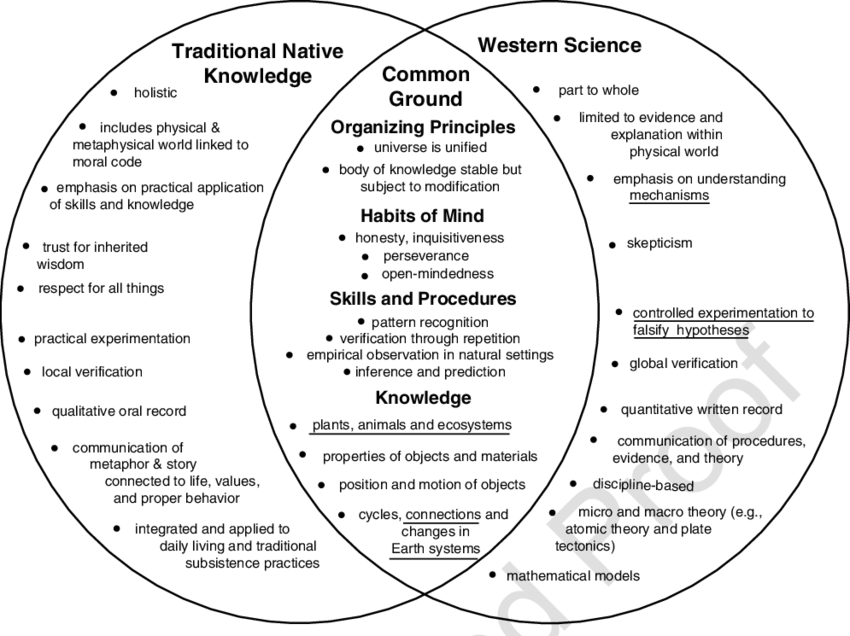Rather than archiving IK as something antiquated, we encourage communities to share their archievements in sustainable life together with the environment as something immensly valuable for today’s urging problems.
We use the term Modern Indigenous Knowledge for traditional, local, and context-related expertise viewed through modern lenses in modern times.
What is Indigenous Knowledge?
Indigenous knowledge is unique to a local society. It is accumulated over generations, has its roots in the past, and is interwoven with the surrounding environment people live in. One major characteristic of indigenous knowledge is its viewing of the environment as an interconnected system. It contextualises human relations, culture, and nature into a coherent network. As such, indigenous knowledge is highly specialised in its respective context. In addition, it balances human and environmental needs into a sustainable equilibrium.
Surprisingly, indigenous knowledge has hardly found a way to acceptance. Instead, it is still often treated as being inferior to modern scientific knowledge.

Where has indigenous knowledge hidden for the last decades?
1970’s great interest, 1980’s participation approaches, 1990’s Worldbank inclusion, all used IK as a product to improve western policies, extracted details rather than including indigenous knowledge as a system. Failure. Abandonment. Now emerging interest due to climate challenges, etc.
Leaving an tremendous amount of knowledge unused, while there is endless opportunities to use it, is uncomprehensible. Even more when knowing that the lack of documentation is already sealing its exstinction.
Why is indigenous knowledge not used?
The reason for its low inclusion into today’s knowledge system lies in the claim that indigenous knowledge could not be proven reliably. This claim is wrong. As with other knowledge, IK is based on experience, observations, and trial-and-error experiments. However, there is a big difference in the way as to proof findings: one of the modern scientific knowledge system’s biggest achievements are objectivity, reliability and validity, while there do not exist such clear criteria for Indigenous knowledge systems.
Why is indigenous knowledge relevant?
Interestingly, environmental systems are by far healthier and nourish life without depletion of natural resources. Thus, an estimate of 90% of the world’s biodiversity is maintained by indigenous communities.
What can we learn from Indigenous Knowledge Systems?
IK is more than being sensitive to different cultures and values. It is more than a resource. It is more than old habits and techniques. It is the result of complex knowledge generation systems, of histories of interaction with the natural surrounding. It is the result of a system preserving gained knowledge, generating new knowledge, testing and disseminating it among the group. It is a constant learning process in close communication with all actors and aspects of a diverse environment.
Curious about more practical insights?